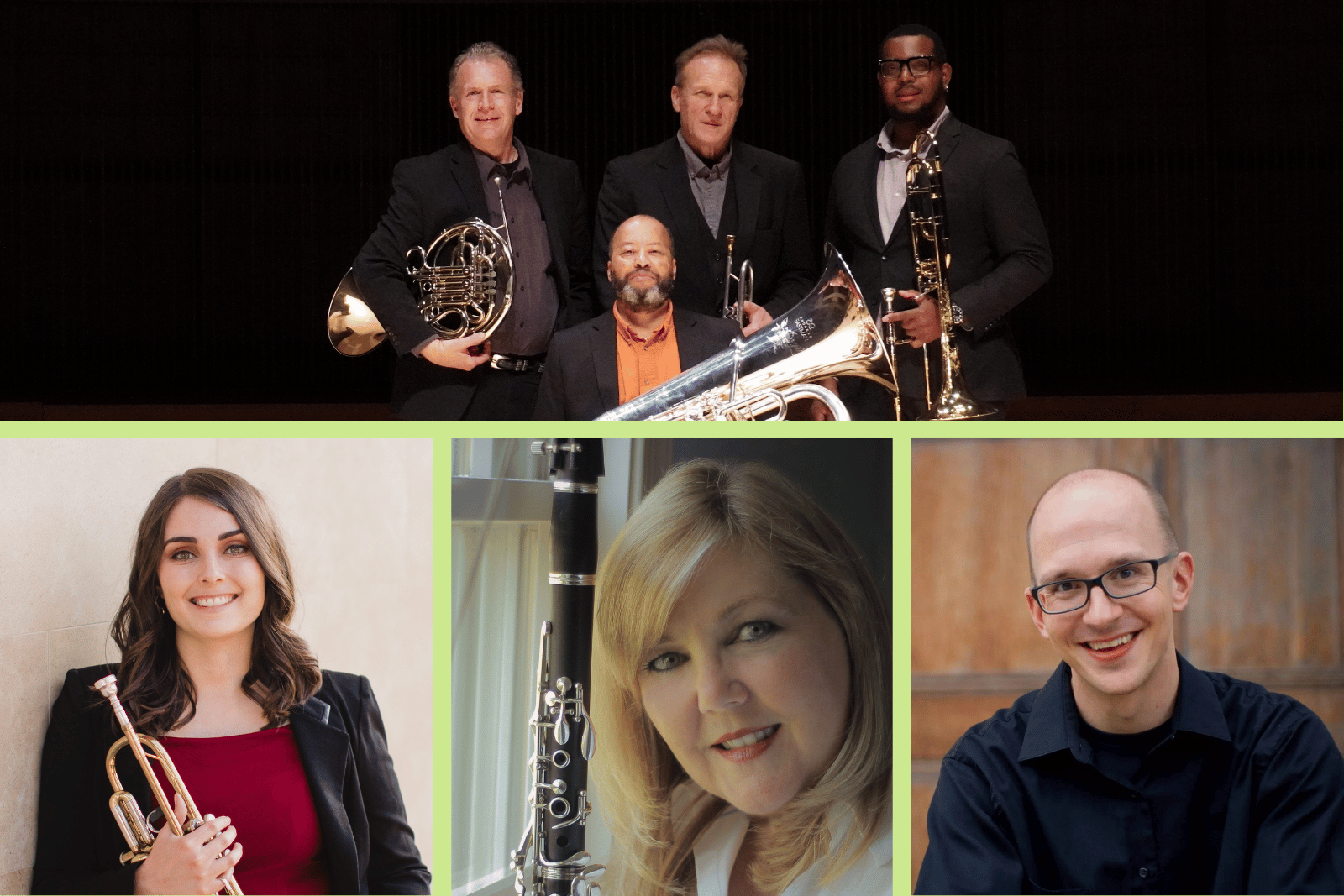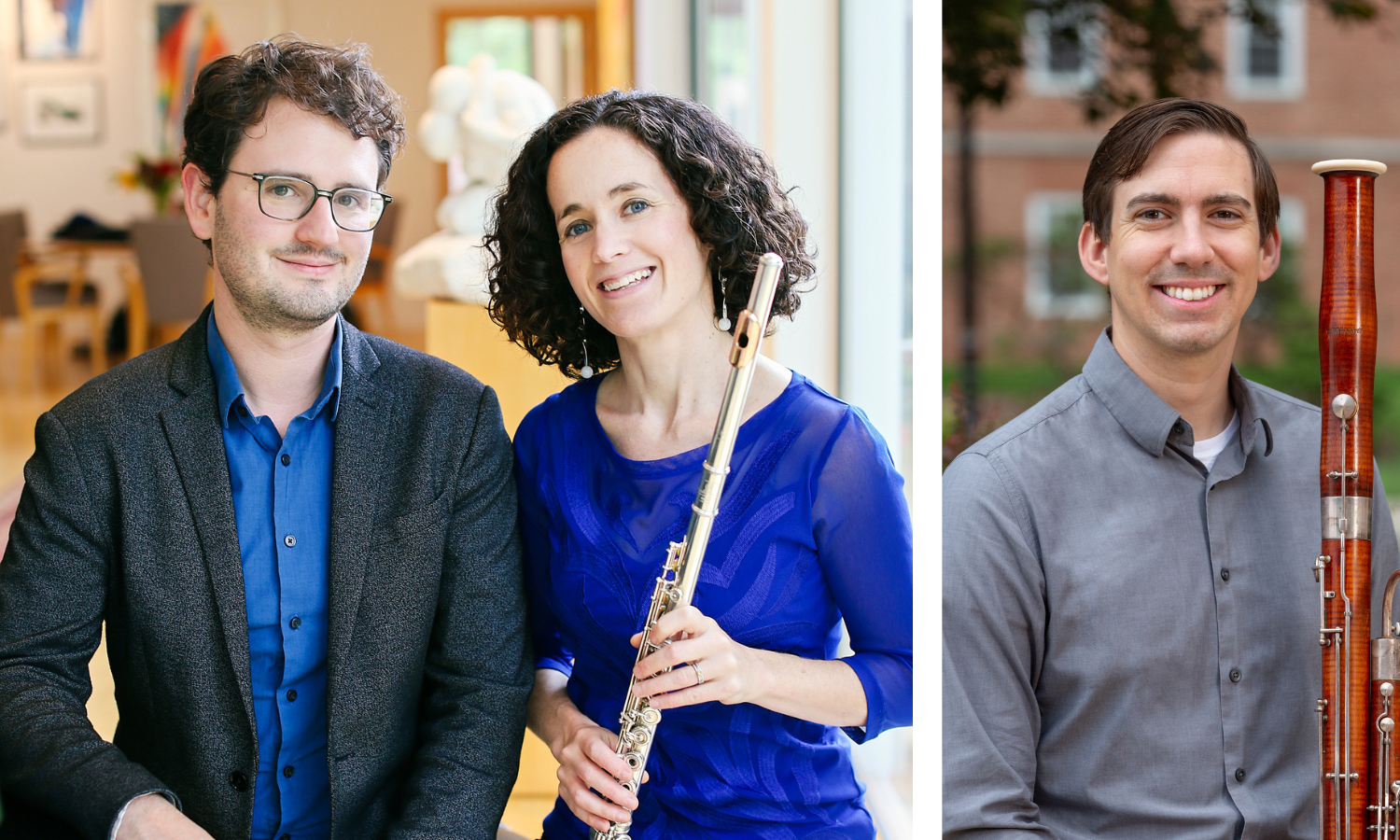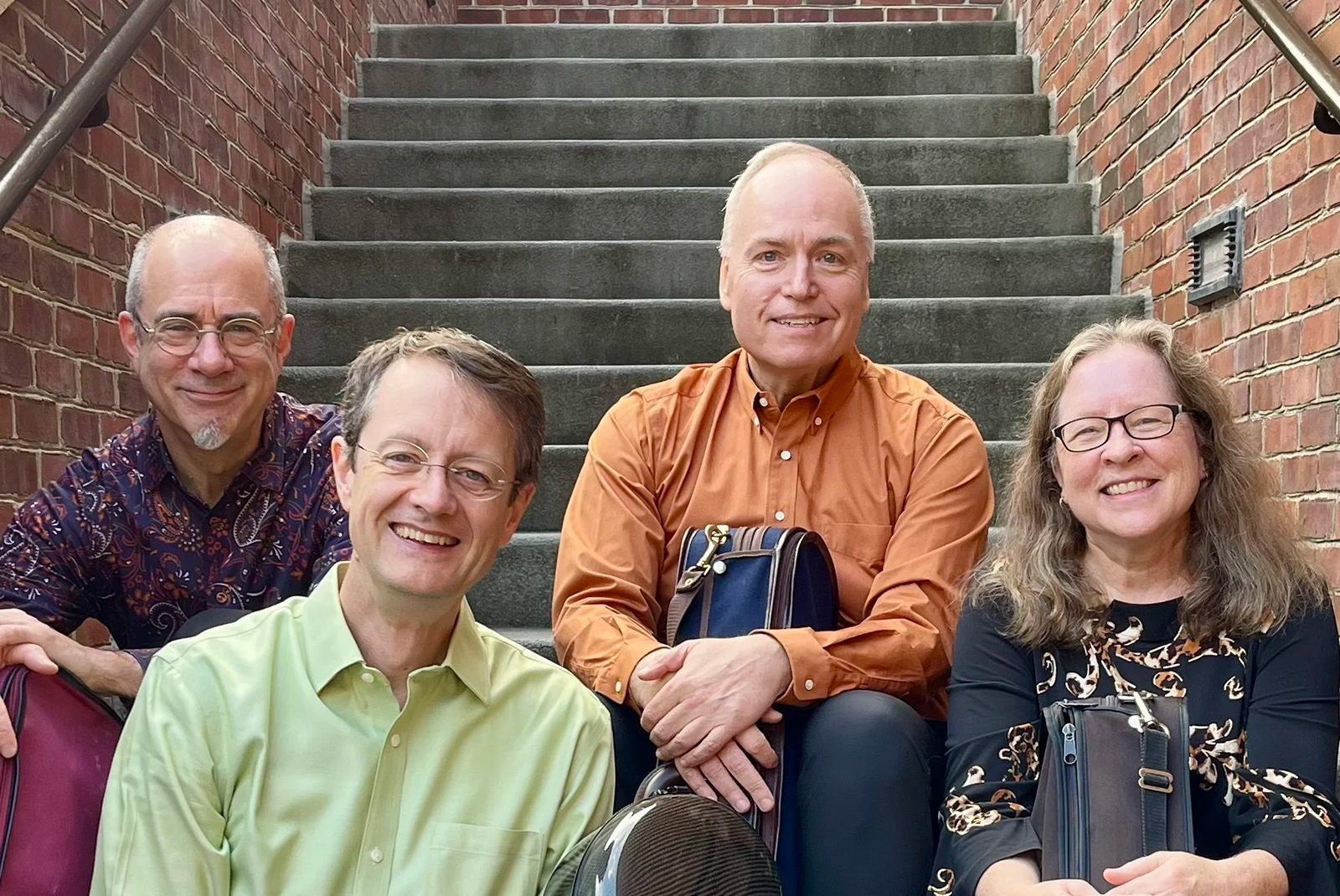College Park Community Food Bank: Mark Hill Benefit Concert

College Park Community Food Bank: Mark Hill Benefit Concert
About the Event
University of Maryland Brass Trio and Brass Quintet
Chris Gekker and Tatiana Giesler, trumpet
Gregory Miller, horn
Myles Blakemore, trombone
Willie Clark, tuba
One of the priorities for the UMD School is to connect and engage with the surrounding community in meaningful and impactful ways. As part of this effort, chamber groups from across the School of Music are presenting a recital to collect donations for the College Park Community Food Bank. This year's benefit performance features the University of Maryland Brass Trio and Brass Quintet.
This Benefit Recital is to help raise awareness about and collect donations for the food bank. By hosting this recital in the Gildenhorn Recital Hall, the School of Music hopes to bring information about the important work being done to address food insecurity in the College Park area to a new location, reach new audiences and encourage people to donate, learn more and volunteer. Join us for this performance where students feed your soul to help feed College Park.
Donation Information
Admission to this recital is free, with a suggested donation of $25, which can be given in the form of cash or check at the recital hall door, or online. There will be a drawing for one attendee to win a Food Bank sweatshirt.
About the College Park Food Bank
Established in September 2008 as a ministry of the College Park Church of the Nazarene, the College Park Community Food Bank became an independent nonprofit in 2021. It is fueled by support from the local community in the form of donations of money, food items, and volunteers. The food bank provides food to any person or family in need without qualification. During the pandemic, the nonprofit expanded its modest operation to serve more than ten times the families served in pre-pandemic times. It is currently supporting an average of 390 families a week and is on track to distribute nearly 30,000 packages of produce and other food in 2025. This is only possible because of the support it receives from the community.



